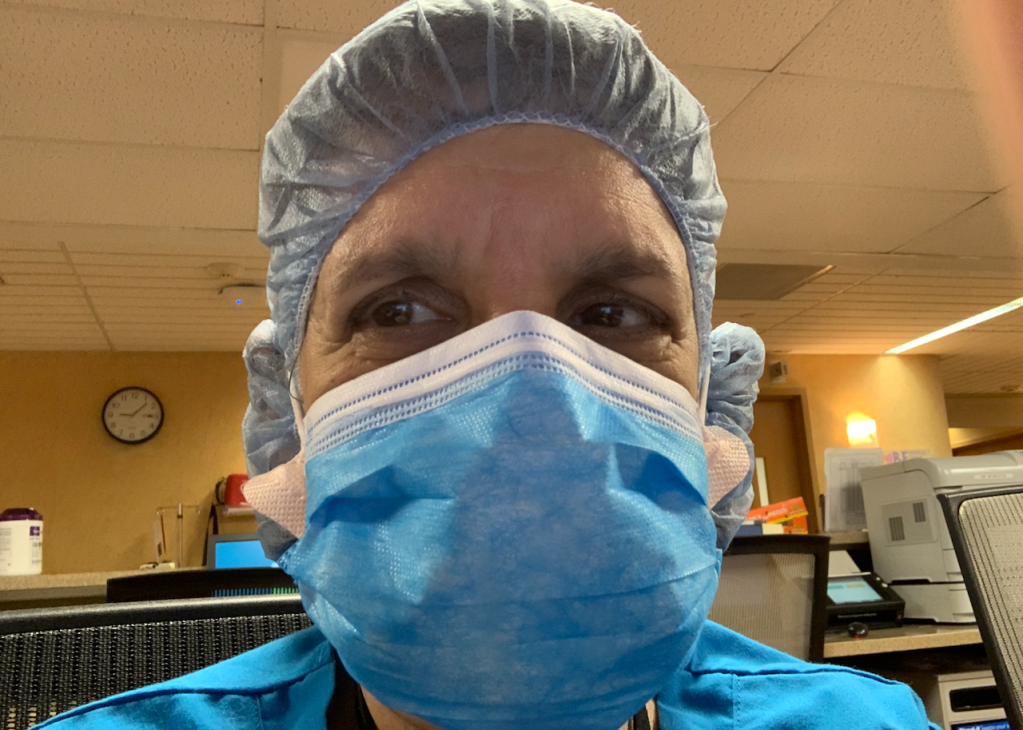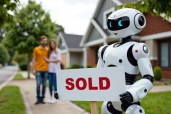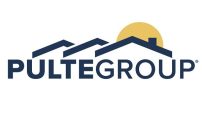I know these eyes. I want to believe I could pick them out of a line-up of 100 people masked-up just like this for a day’s work.
Thanks to social distancing, personal protective gear, hand-washing, and stay-at-home measures New Jersey-ites have been practicing, new admissions to the three hospitals she covers in the central band of the state show signs of flattening.
After working pretty much every day since St. Paddy’s Day, and taking calls at any hour of the night, the one with these eyes has a “weekend” this week, a day off today, Monday, April 20.
I can tell you, she’s smart, funny, and warm-hearted. You’d probably like hanging out with her. But, you know what? She’d rather not get to know you right now as one of her patients. She’d just as soon you do everything you can do to stay far away from the hospitals she frequents these days. What’s more, if you’re supervising people, or partnered with people, or in an organization that connects with people in workplaces these days, she’d ask that you do everything within your power to keep them from becoming one of her patients.
One of the reasons for that is that there’s still too many questions about what to do if you get sick. Will you get better on your own? Will medical therapies–and which ones–help? Will you fall among the statistical few whose immune responses overreact to the virus, triggering a systemic shock and failure?
Another thing she’d ask, with all due respect, right now is to stop using the “hero” word to talk about what she’s doing. It’s overused, and may be losing meaning, and in current usage, it fails to pick up “who the real heroes are” in her mind–the nurses and anesthesiologists doing the intubations, the orderlies cleaning, the nursing supervisors, the EMS technicians bringing in people suffering acute symptoms, the people that keep the hospital operating around the clock, come what may.
“It’s my job. I’m not a hero. I’m doing my job.” That’s about it.
Some would beg to differ.
What matters is this.
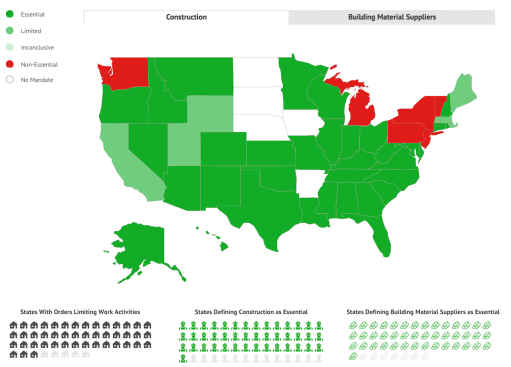
In Covid-19 real-time and in the fragile early stages of an ebbing tide of contagion, and testy easing of local restrictions on activity, who owns workplace safety and health? No, really, who owns it in the sense my wife owns your care if you were to get sick in life, or at work, or wherever? Who gets up each day and goes to sleep at night with a fully-formed sense of duty to ensure that the entire human chain of value creation in their organization is protected from harm to their physical person? If my wife’s job is–no matter what–to take care of you if you get sick, irrespective of what’s making you ill, who’s job is it to try to keep you from becoming infected with the novel coronavirus?
Join us for Episode 3 of our #BuildersAreEssential webinar series, for a dive into this question, some thoughts that could lead to smarter decision-making, and some ideas. Click here to register.
Is it an individual’s “job” to protect his or her jobsite well-being? Is it the project’s supervisor’s role? How about the owner-employer on the project–does accountability lie there? What about OSHA, or any local health departmenrt? Is it Uncle Sam’s job to ensure health and safety at our workplaces?
David A. Kessler, M.D., professor of epidemiology, biostatistics and pediatrics at the University of California, San Francisco., believes that the answer is all of the above. He writes, in fact, that “a new clause” in our social contract will be essential to a way out of the fix Covid-19 and the economic meltdown we’ve got ourselves in. Kessler writes in this New York Times opinion piece:
“Just as we obey the most basic laws in order to protect all of us, everyone needs to accept responsibility for not only our circle of friends, family and colleagues, but for the wider community. Our collective behavior will be the primary determinant of whether we can keep this virus in check. We each hold the health of our neighbors in our hands.”
The good news about builders–the entire lifecycle of investment, design, engineering, manufacturing, construction, finishing, marketing, and selling–is that they’ve got lots, and lots and lots of practice in parts and pieces of true collaboration. Intricate interactions, partnerships, coopetitions, handoffs, handshakes, tasks, subtasks, and deals form the multivariate linkages that make the whole of homes and communities.
Another New York Times column, this one from David Brooks, while highlighting that my wife’s behavior is “ordinary, not heroic,” in her own mind, notes something that builders and their ecosystem of stakeholders might take heart in for the reason that they’re good at it.
“I’m also reminded of the maxim that excellence is not an action, it’s a habit. Tenacity is not a spontaneous flowering of good character. It’s doing what you were trained to do. ”
#BuildersAreEssential is about people and companies doing what they’re well practiced at, what they’re trained to do, what they signed up to do as a norm. And they hew tenaciously to the capacity to do this job under circumstances both favorable and dire.
It’s about getting past the “false-choice” when it comes to the need for leaders and followers alike to protect both lives and livelihoods in the uncertain and risky journey ahead of us. It’s about enlightened self-interest, which pre-supposes that:
“Persons who act to further the interests of others (or the interests of the group or groups to which they belong), ultimately serve their own self-interest.”
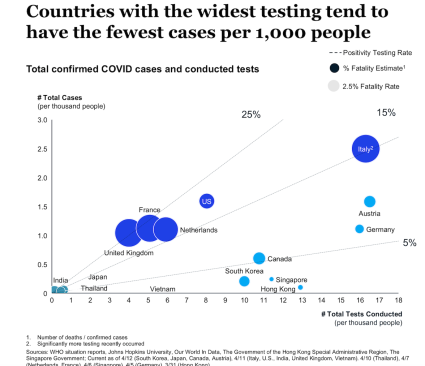
Source: McKinsey & Company COVID-19 Briefing Materials
To date, the U.S. has novel coronavirus testing data on less than 2% of its population of almost 330 million people. Without data, no one owns the health and safety of builders on job sites or their myriad human supply and value chain members in building’s lifecycle.
As Calculated Risk author Bill McBride notes, a current rate of 16% positive tests for Covid-19 among those who get a test is too high to safely open the economy. More like 5% will be necessary, which means we need to at least double the number of people getting tested each 24 hours to enter firm ground for reopening for businesss.
Our Episode 3, #BuildersAreEssential program looks hard at that fact, at questions of how to navigate in a Post-Covid operational environment, making both lives and livelihoods our first and only choice. Join us, won’t you?
